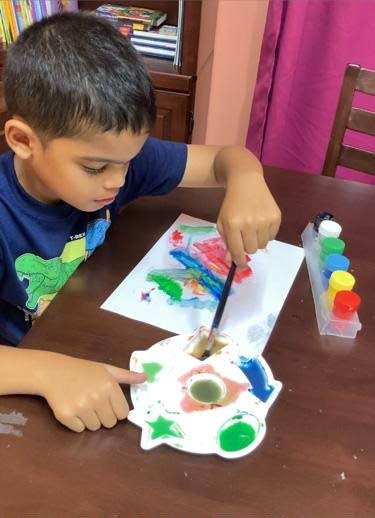The panic over special-needs schools

DR RADICA MAHASE
It is that time of the year again, when we are bombarded with calls from parents who are trying to get their children into schools. By now, those who had applied for admission into public schools will know if they were not accepted. Thus, parents/caregivers will start looking for private schools.
Generally, I find that these two months are when parents are most desperate to get their children into schools because they see other parents starting to prepare for the start of the new academic year and they have hopes and expectations for their own children. Many parents panic and rush to enrol their children in whatever school would accept them. There are too many cases where their children start attending schools but a month or two later, they are forced to stop school.
In most cases this happens because parents realise the schools were not working with their children as they had hoped and expected. In some cases, it is because some of the schools didn’t have qualified or experienced teachers, amongst other reasons.
The situation is sad, especially when parents have already paid for the entire term. With this in mind, I urge parents/caregivers to take their time in selecting a school that is most suited for your child’s special needs.
Here are some points to take into consideration when choosing a school for your children:
Do not panic
Many parents think you do not have much of a choice and they rush to enrol their children into any school that is willing to take them.
However, this might actually cost you extra money later on and result in your child being traumatised if the school is not the right fit for your child.
At the same time, not panicking is easier said than done – most parents want to get their children the help they need, and educating your child is certainly a necessary road to travel.
However, you have to know your children as well. Is your child at the development stage where he/she is mentally and physically able to attend school on a full-time basis? Is this school going to really help your child? Are you trying to get your child into a school because that is what you are supposed to do as a parent as opposed to your child being ready for this step?
It is better to make sure that your child is at the level needed to function properly in a school environment rather than, a couple of months later, you realise that it is not working out and you have to take your child out.
Before you enrol your child, make sure your child visits the school

For many on the autism spectrum, it takes a little extra effort to visit new places. Even if your child is comfortable entering new spaces, you should let him/her visit before, to get a feel of the space. It can be very traumatic for a child to be placed in a new environment with new people. Visiting the school before and meeting the teachers will help your child to transition into a school environment faster, to make him/her feel more comfortable.
Most private schools will allow you to visit and meet the teachers/aides before your child starts school. Some might allow your child to spend an orientation day or week.
If the school does not allow for visits and orientation, that itself might very well be a red flag – especially if it is a school for children with special needs, as they are the ones who should be most understanding of the need to prepare children in advance.
Do your research on the school before you settle on it
Most parents are so happy that a school is willing to accept their children that they ignore many red flags. Doing your research prior to enrolling your child in a school means making sure that the programmes offered are align to the vision that you have for your child’s education.
What are the school’s policies on bullying, inclusion, religion and so on? Does this school practise an approach to teaching that will stimulate your child intellectually? Are there teachers qualified and trained in special needs education?
It is your responsibility to find out all the relevant information before you enrol your child and any school that is providing a good-quality special-needs education will willingly answer your questions. Finding out the school’s expectations of parents and making sure you are in agreement with those expectations can avoid conflict later on.
Have a conversation about safeguarding policies
Some children on the autism spectrum are unaware of danger. Too many times we hear incidents where children walked out of the school.
Is the school in an enclosed area? Are there ample security measures in place? Who are the people who will interact with your child outside class time? These are things that you must find out before you enrol your child in a school. If your child is nonverbal, he/she might not be able to communicate incidents of bullying, abuse and so on. Are there provisions in place for a hyperactive child or a child who might have a meltdown – a sensory room or any quiet space?
Rushing to enrol your child in a school because you feel that school is your only option is often a reality in Trinidad and Tobago, given the shortcomings in our education system.
At the same time, it can be a traumatic experience for a child who attends a school where he/she is bullied, where teachers don’t understand or are not trained to teach students with special needs.
Don’t panic, and do your due diligence.
Radica Mahase is the founder/director of Support Autism T&T

Comments
"The panic over special-needs schools"